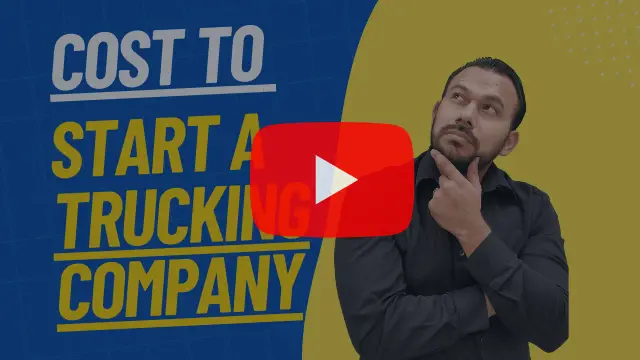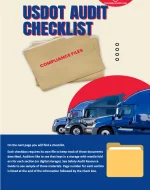If you operate a commercial vehicle across multiple states, obtaining your apportioned plates through IRP registration in Indiana is a legal necessity. The International Registration Plan (IRP) enables commercial carriers to travel across jurisdictions while paying a proportional registration fee based on mileage. This guide walks you through how to get your apportioned plates in Indiana, the documents required, and how it ties in with the International Fuel Tax Agreement (IFTA). We’ll also provide helpful resources and a way to get expert help if you need it.
What Are Apportioned Plates and What Is IRP Registration?
Apportioned plates are issued under the International Registration Plan (IRP). They allow commercial motor carriers to register their vehicles for operation in two or more jurisdictions under a single account. Instead of having separate plates for each state, carriers receive one apportioned plate and a cab card listing the jurisdictions and fees paid.
Key Benefits of Apportioned Plates:
- Register once and operate across state lines.
- Fees are split based on the percentage of miles traveled in each jurisdiction.
- Simplifies compliance with multiple state registration requirements.
For more information, visit the Indiana IRP website or the official IRP site.
Who Needs Apportioned Plates in Indiana?
According to the Indiana Department of Revenue and FMCSA, you need apportioned plates if your vehicle:
- Has a gross vehicle weight (GVW) of more than 26,000 pounds.
- Has three or more axles, regardless of weight.
- Operates in interstate commerce, crossing Indiana’s borders.
Vehicles used only within Indiana typically do not need apportioned plates.
Required Documents for Apportioned Plates in Indiana
Gather the following documents before applying to ensure a smooth registration process:
- Articles of Organization or Business Formation Documents
- Valid Driver’s License
- Proof of Indiana Residency or Lease Agreement
- Vehicle Title or Lease Agreement
- Proof of Insurance (meeting Indiana’s commercial vehicle coverage requirements)
- Mileage Records from the past year (if renewing or transferring)
Having these ready avoids delays and potential rejections. If you need help gathering documents, view our pricing page.
How to Apply for Apportioned Plates in Indiana
Follow these steps to apply for your apportioned plates:
- Create a Motor Carrier Services (MCS) Account – Visit the Indiana IRP portal.
- Complete the IRP Application – Include vehicle details, base jurisdiction, and intended travel jurisdictions.
- Submit All Required Documents – Upload the documents listed above.
- Pay Fees – Your fee will be calculated based on mileage in each jurisdiction.
- Receive Apportioned Plate and Cab Card – These must be carried in the vehicle at all times.
Need Help Obtaining Your Permits?
Get Your Trucking Authority Today!
We Can Help You Setup Your Registrations .
Speak With Our Experienced Permit Professionals That Can Help You Every Step Of The Way.
Call Us Today! Live Agents Are Standing By.
Understanding IFTA and Why It’s Required
The International Fuel Tax Agreement (IFTA) is a multi-jurisdictional tax arrangement simplifying fuel tax reporting for interstate carriers. Rather than filing separate tax reports in each state, IFTA lets you file one quarterly return through your base state.
Who Needs IFTA in Indiana?
You must register for IFTA if your vehicle:
- Has a GVW over 26,000 pounds, or
- Has three or more axles, or
- Operates in more than one jurisdiction.
Visit the Indiana IFTA page or the official IFTA website for more info.
How to Register for IFTA in Indiana:
- Apply Through the Indiana MCS Portal – Submit an IFTA application.
- Provide Business and Vehicle Info – Be ready with your EIN, vehicle list, and prior mileage.
- Pay IFTA Application Fees – Based on fleet details.
- Receive IFTA Decals and License – Display decals on both sides of each qualifying vehicle.
- File Quarterly Fuel Tax Reports – Stay compliant by reporting mileage and fuel usage.
Definition of a Commercial Motor Vehicle
According to the FMCSA, a commercial motor vehicle is defined as one that:
- Transports goods or passengers for profit or business use, and
- Meets the weight threshold (GVW over 26,000 pounds or has 3+ axles).
Visit the FMCSA site for more guidance.
Why Choose Us for Your Apportioned Plate Registration in Indiana
We take the complexity out of compliance. Our experts provide:
- IRP and IFTA application support.
- Document preparation and filing.
- Customized guidance for your business model.
See all the ways we can help on our pricing page.
Trucking Authority Services
Core Services:
- MC Number Application – Required for interstate carriers.
- BOC-3 Filing – Ensures legal compliance.
- UCR Registration – Unified Carrier Registration filing support.
- Form 2290 Filing – For IRS HVUT compliance.
- IFTA & IRP Setup – Get your credentials fast and accurately.
Business Formation Services:
- LLC and Corporation Setup – Designed specifically for trucking startups.
Indiana-Specific Permits and Support:
- Indiana IRP Registration – Complete setup from start to finish.
- Indiana IFTA Registration – Fuel tax compliance for Hoosier carriers.
- Intrastate Authority – For those operating solely within Indiana.
Explore all services at our pricing page.
FAQs
What are apportioned plates?
Plates that allow commercial carriers to operate in multiple states under one registration.Who needs to get apportioned plates in Indiana?
Vehicles over 26,000 pounds or with 3+ axles that travel interstate.How do I apply for apportioned plates in Indiana?
Through the Indiana MCS IRP portal by submitting required forms and documents.What documents are required?
Business formation docs, vehicle title, insurance, mileage logs, and ID.What is IFTA?
A fuel tax program that allows multi-state carriers to file a single tax return.Do I need IFTA in Indiana?
Yes, if your vehicle operates interstate and meets the size requirements.How often do I file IFTA reports?
Quarterly.Can I apply for apportioned plates and IFTA online in Indiana?
Yes, through the Indiana MCS portal.Can you help with apportioned plate and IFTA setup?
Absolutely! Learn more here.What happens if I don’t register for apportioned plates?
You risk fines, operational bans, and enforcement action in other jurisdictions.







